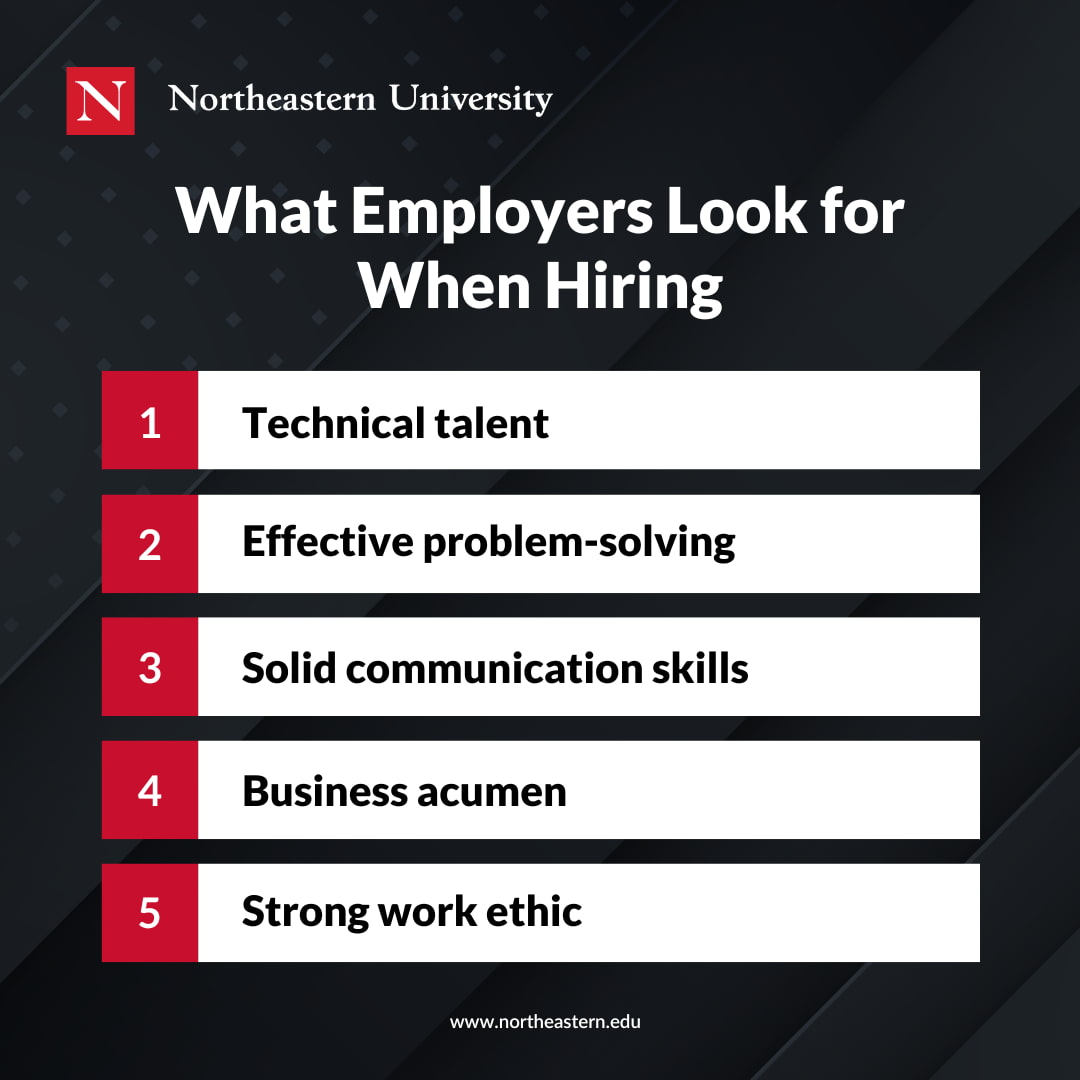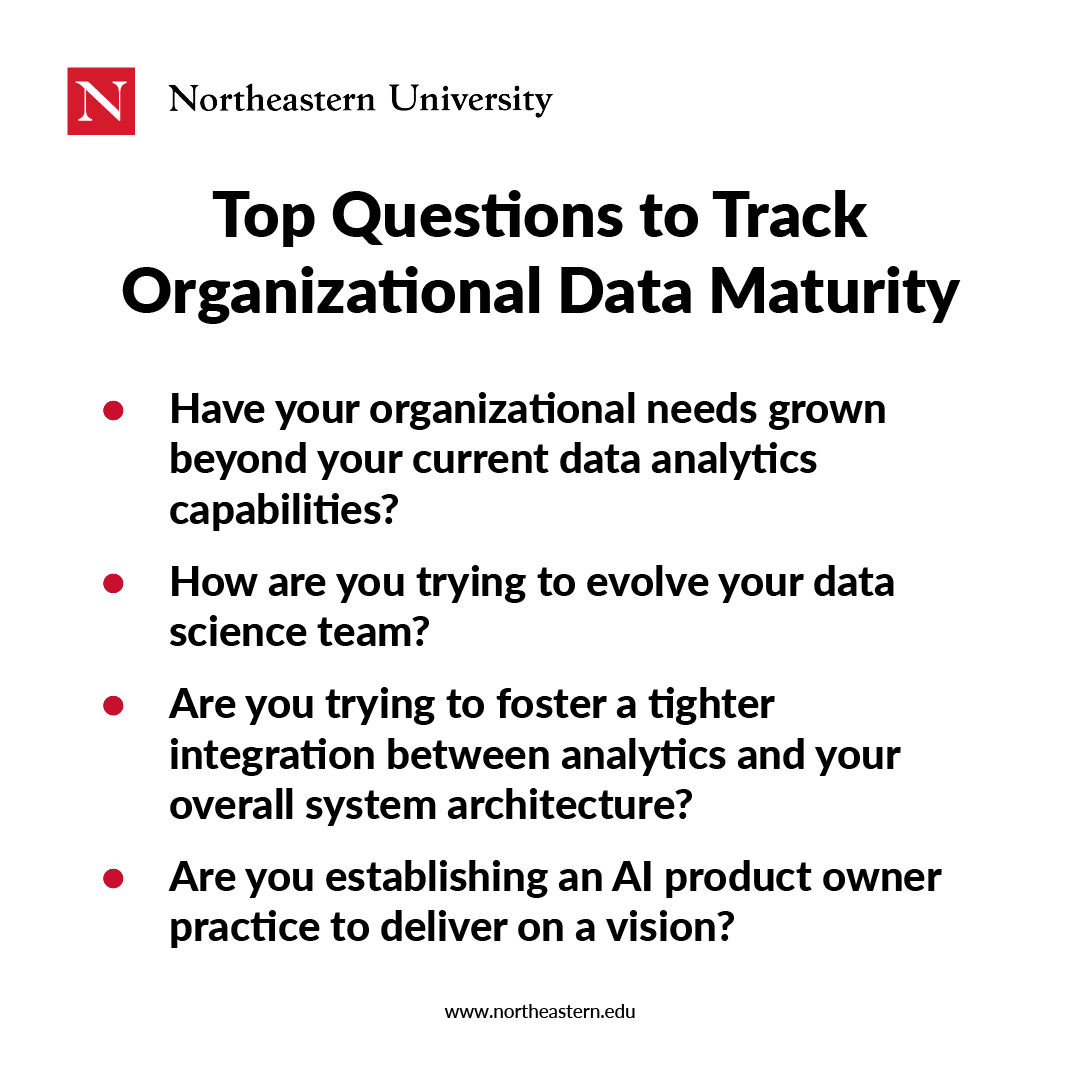The world we are living in is quite different from when the College of Professional Studies (CPS) at Northeastern University held its symposium, The Intersection of AI and Talent Strategy.
Digital transformation is happening at the speed of light, creating opportunities as well as uncertainties, as well as transforming how individuals and organizations interact in the networks we are building.
The conference organizers recently went back to some of the symposium participants to ask how artificial intelligence (AI) and talent strategy has changed and affected what they are doing in their organizations today. Here’s what they had to say.
Adapting to a Changing World
We consulted many professionals on how their work has changed today and is expected to do so in the future.
- The demand for experiential learning has further increased as it is increasingly difficult to find analytics, science, architectural, and engineering experience. The challenge is not the availability of talent; it is uncovering the best talent that possesses a combination of technical skills and tools, communication skills, and business acumen. For that reason, internships and experiential projects are required for students to learn technical and professional skills and competencies.
- The reliance on data has increased. For example, monitoring has become more important to control and simulate the spread of the virus. The need to use analytics and AI knowledgeably and ethically has also become even more apparent.
- The demand for technology has increased. Automation offers a potential solution to disruptions in the workflow, and IT, AI, and analytical skills are in high demand.
How AI is Changing Talent Acquisition
The growing demand for technology is evident in the increasing use of AI. Its impact has been felt across all sectors, including its integration into employers’ talent acquisition strategies.
Reviewing Candidates
AI-powered tools can optimize the time spent in the initial hiring process by analyzing various resumés and quickly scanning to identify top candidates based on specific criteria that employers are looking for.
Employers and recruiters can also use AI algorithms to analyze job candidates’ social media presence and online assessments to help evaluate their skills, qualifications, and cultural fit.
Automating Communication
Another way AI can help is by building and maintaining relationships with potential candidates through personalized communication through automation technology. This automation ensures candidates receive follow-ups and job recommendations based on their qualifications.
Writing Job Postings
AI writing tools such as OpenAI’s ChatGPT or Google Bard can help recruiters write compelling job descriptions. These tools can help write the job posting and provide a list of relevant skills, qualifications, and experience requirements. Even if the generated description isn’t perfect, it can produce an easily editable result to save recruiters an abundance of time.
Improving the Overall Recruiting Experience
The potential of AI in talent acquisition is clear. Employers who embrace AI for their acquisition strategies will gain a competitive edge in attracting, assessing, and selecting top talent. A talent acquisition strategy powered by AI can provide organizations with vital data that will help make wise decisions, improve efficiency, reduce biases, and enhance the overall candidate experience. The growth of AI technology in all sectors enables employers to keep pace with a rapidly changing world, helps them effectively navigate the evolving recruitment landscape, and brings about more successful business outcomes.
This article is the first in a three-part series that builds on key findings on AI and talent strategy for 2023 and beyond. Part I discusses the need for experiential learning and successful analytics and AI talent strategies.
Part I: AI and Talent Strategy—Key Findings
Experiential Learning is Critical in the Digital Era
Experiential learning provides professionals with a better understanding of business, particular organizations, and new cognitive frameworks. Lambert Hogenhout, Chief Data, Analytics, and Emerging Technologies Officer at the UN, and many others agree that holistic education that embraces experiential learning is mandatory for success in times of digital transformation.
“It was and is hard to find people on the advanced technical level,” he says. “There are lots of people that skim the surface and can do the easy tasks [like statistics, excel, working with databases], but it is quite difficult to recruit for the technical—the hard skills—for the architecture questions, where more experience is required. Furthermore, professionals that are successful in their current jobs are not leaving their jobs, and organizations try to hold on to them.”
Chad Iverson, PhD, Senior Manager of Applied Intelligence at Accenture, explains that “the candidate pool of experienced AI professionals appears to be getting smaller.”
Matt Moocarme, PhD, Director and Senior Data Scientist with ViacomCBS’s Advertising Science team, agrees. “The candidate pool, especially for data engineers, is getting smaller. That is a very underserved role; not too many people are applying for the data engineer role. That is, in my opinion, the most in-demand role. Every data scientist needs at least one data engineer to do the job effectively.”
Iverson continues, “On the other hand, there is an increasing number of programs that educate up-and-coming professionals with the skills we need in the workplace. But, it is more difficult to find and hire a professional with that experience already under their belt. Many organizations are developing talent internally and providing their current staff opportunities to gain experience in the workplace. One challenge in education I see is taking a learner through an entire project from beginning to end, especially in a six- or ten-week university class. Higher learning still needs to address that–it’s an unmet need.”
Additionally, experiential learning is purposefully intertwined with soft or professional skills. Moocarme recognizes that and offers a possible solution. “Get internships to gain industry experience and provide more classes in a program that is teaching soft skills. It is super beneficial to have soft skills—to understand why you are doing what you are doing, rather than predict the next number. Being able to trace back until to hit that root, and you work your way back. For students that have just the classroom environment, that is very hard.”
Take an Interdisciplinary Approach to an Ever-Evolving Field
Learn how Northeastern’s advanced AI degree can accelerate your career.
Allister Duncan, Managing Director at Defined Calculus, agrees that most companies look for the following when hiring:
- Technical talent who actually have the technical chops aligned with their resumé content.
- Effective problem solvers who ask meaningful questions and work collaboratively to deliver business solutions.
- Solid communicators who have the ability to translate a complex technical insight or method to a non-expert.
- Business acumen and the ability to see the bigger picture—not just delivering on the technical side.
- A willingness to learn and improve irrespective of one’s experience level (in both technology and business).
- Professionals who possess a strong work ethic and appetite to succeed despite occasional setbacks.
- Demonstrated humility, honesty, and integrity.

Northeastern’s College of Professional Studies designed its 2018-2025 Strategic Plan to embrace this responsibility as an educational institution. As stated in the plan, “[CPS] meets the future of work head-on by providing lifelong, on-demand experiential learning in high-demand fields, with curricula that incorporate the full range of capacities—data literacy, technological literacy, and human literacy—needed to make people robot-proof throughout their lives and whatever their starting point. Because we embrace this responsibility, we actively assess our impact on individuals and communities through the lens of inclusive prosperity.”
Successful Analytics and AI Talent Strategies for 2023 and Beyond
In business, talent strategy is not only about hiring. The organization and hiring leaders are responsible for ensuring that a new set of digital leadership skills are taught and lived. This includes identifying the key specialist skills the business currently needs.
According to Iverson, these skills depend on what the business is looking for and where your organization is on the data maturity curve. You should ask the following questions:
- Have your organizational needs grown beyond your current data analytics capabilities?
- How are you trying to evolve your data science team?
- Are you trying to foster a tighter integration between analytics and your overall system architecture?
- Are you establishing an AI product owner practice to deliver on a vision?

“In my experience,” he says, “the most effective AI staffing strategy acknowledges where an organization sits on the data maturity curve in the context of related business or mission objectives.”
Iverson continues to explain that if an organization starts to realize value with just a few data engineers and data visualization professionals, they may find that before they hire data scientists, they need more data analysts. Additionally, if they already have a strong team of data scientists with advanced skills such as predictive analytics, they may decide to take things a step further and seek out machine learning specialists or even data or systems architects. “Eventually, many organizations find they need staff with experience maturing data analytics capabilities, scaling data systems, and delivering AI and insights all the way to the edge, closer to the point of customer engagement,” Iverson says.
After the pandemic’s effect on the world , another element came into play: remote hiring. Hogenhout explains that society was “…already on the verge of working from home. We are now forced to do that, and everybody is discovering that it works very well, and we are getting used to it. Given the fact that everybody is working remotely now—and that some of that dynamic will likely continue in the future—it makes sense that those virtual teams be increasingly open to members located in any part of the world, which will increase team diversity and possibly reduce costs.”
However, there are limits to virtual teams, says one VP of Data Science at a major pharmaceutical company. “We learned that we can’t offshore everything; we need some in-person teams, and data science is one of them. This structure also helps to define the purpose of the team. In-person teams are also better for custom work.”
Hogenhout continues that remote hiring requires candidates with specific skills, including:
- Self-discipline
- Professionalism
- Planning
- Organizing
“Nobody will look over their shoulder and remind them of deliverables,” Hogenhout explains. “More of that onus of delivery is on the employee. Staying in contact with your colleagues requires team members to be much more proactive. The introvert that was carrying along in the past is now in a more difficult situation. Managers need to hone their managing skills to bring all along while working remotely.”
Those leadership skills that must be refined are ambidexterity, agility, audacity, and acuity. “Success in this new world requires building a new set of ‘digital leadership’ behaviors—starting with top management and extending throughout the business,” said Michael A M Davies, Founder, Chairman, and Senior Partner of Endeavour Partners.
For more, check out Part II.






Related Articles
Is a Data Analytics Bootcamp Worth It?
What is Learning Analytics & How Can it Be Used?
How to Get Into Analytics: 5 Steps to Transition Careers